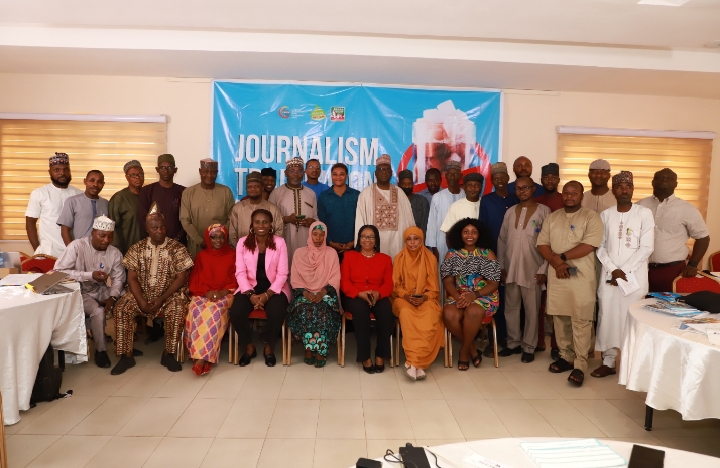Noncommunicable diseases (NCDs) have been identified as a major cause of death in Nigeria, accounting for approximately 30% of all fatalities in the country.
The Executive Director of Corporate Accountability and Public Participation Africa (CAPPA) Akinbode Oluwafemi stated this during a journalism training on the Sugar-Sweetened Beverage (SSB) Tax and Industry Monitoring held in Kano.
He highlighted that Nigeria is currently facing a growing public health crisis driven by dietary habits, particularly the excessive consumption of ultra-processed foods such as sugar-sweetened beverages and high-sodium products.
Combating Infectious Diseases MNCH My top Priority-Ibrahim Sosè
“Food corporations are deploying sophisticated marketing strategies to lure Nigeriansespecially children and young adults into consuming these unhealthy products,” he said.
“This not only damages individual health but also undermines public health policies and burdens the healthcare system.”
Oluwafemi warned that diseases previously considered distant concerns are now common in Nigerian households, draining family finances, straining the healthcare infrastructure, and threatening the well-being of future generations.
He pointed out that, to address this, the Nigerian government introduced the Sugar-Sweetened Beverage (SSB) Tax in 2021, which imposes a ₦10 levy per litre on all non-alcoholic, sweetened, and carbonated drinks.
WAHO Expands Lassa Fever Coalition to Fast-Track Vaccine Access
“The policy aims to discourage excessive consumption of sugary beverages, reduce dependency on such drinks, and curb the rising tide of SSB-related noncommunicable diseases”
However, Oluwafemi expressed concern over the inadequacy of the current tax rate, stating that its low threshold has made it largely ineffective. He also criticized the spread of misleading narratives by the beverage industry and the lack of transparency inhow tax revenues are utilized by the government.
The training in Kano, he said, is intended to empower media professionals to accurately report on public health issues, particularly the burden of noncommunicable diseases and the effectiveness of pro-health policies.
“It’s essential to equip journalists with the tools to identify and counter industry tactics that threaten public health. Through accurate, compelling, and investigative reporting, the media can play a pivotal role in educating the public, holding stakeholders accountable, and advocating for stronger health policies,” he emphasized.
In their goodwill messages, the deputy director l, risk factors, federal ministry Pharmacist of health Dr. Dorothy Amadi and Joy Amafah from the Global Health Advocacy incubator (GHAI) described the training as apt.
They described the media as relevant stakeholders and urged them to use their platforms to accurately report health concerns.
The event tagged Journalism training on Sugar Sweetened Beverages SSB Tax campaign witnessed large turn out of journalists from print, broadcast and new media.
Khadijah Aliyu





